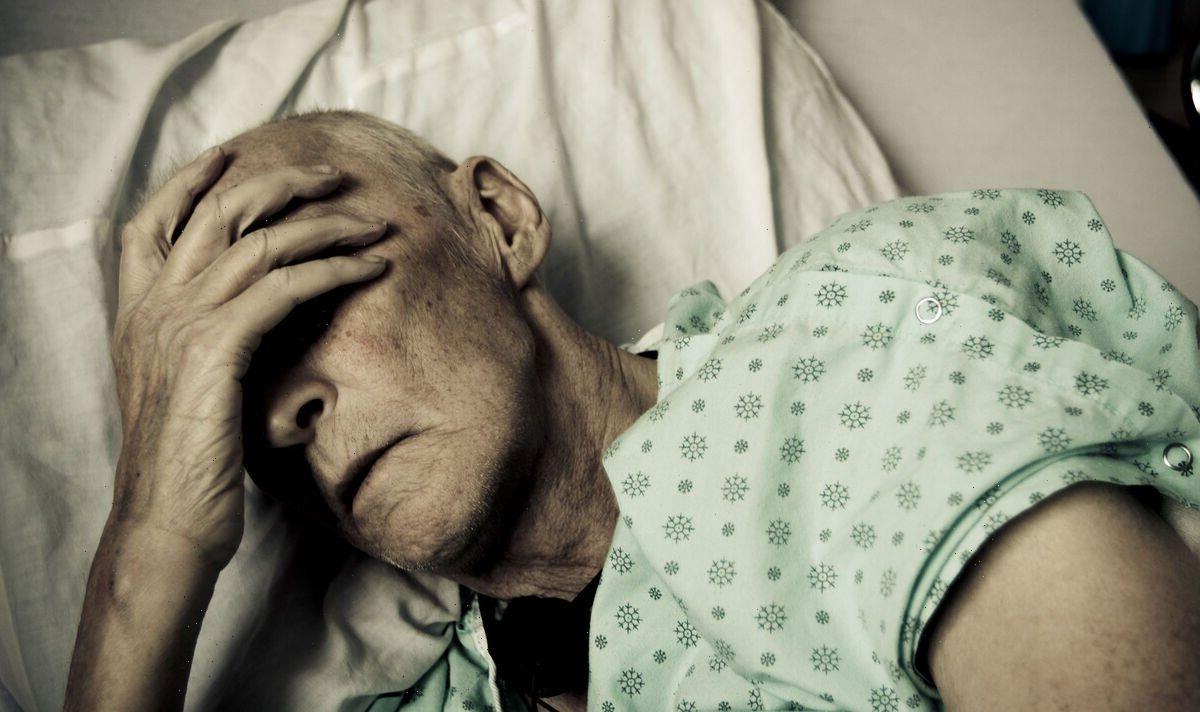Cancer symptoms: Top 14 early signs to look out for
We use your sign-up to provide content in ways you’ve consented to and to improve our understanding of you. This may include adverts from us and 3rd parties based on our understanding. You can unsubscribe at any time. More info
The severity of cancer symptoms intensifies as the disease progresses, yet many patients ignore them until they become unbearable. Unfortunately, failure to report symptoms early significantly worsens the prognosis of cancer. Reports state that most patients diagnosed in the advanced stages report the same debilitating symptom.
The American Cancer Society explains: “Fatigue is the feeling of being tired and not being able to do things at your usual pace.
“This tiredness can affect you physically, mentally and emotionally.”
Those cancer patients afflicted by this symptom often describe an ongoing sense of extreme tiredness that does get better with rest.
“Almost everyone with advanced cancer has this symptom,” adds the health body.

When advanced cancer is diagnosed it is unlikely to be cured or controlled efficiently with treatment.
This is because the tumour will have invaded nearby tissue, lymph nodes and other distant parts of the body.
Treatment may still be administered in a bid to shrink the tumour, but sometimes doctors decide the risks of treatment outweigh the benefits.
It should be noted that people with advanced cancer are more likely to experience fatigue than those patients in the earlier stages of the disease.
The main cause of fatigue in cancer patients is disruptions to the body’s hormone levels, which is often seen in diseases like breast and prostate cancer.
Once there is a higher number of cancer cells in the body, fatigue may lead to decreased eating, and decreased activity.
Cancer Research UK adds: “Some cancers make substances called cytokines.
“Cytokines are a group of proteins in the body that play an important part in boosting the immune system. These can cause fatigue.”

A report published in the medical journal BMC Primary Care characterised the type of fatigue in patients with terminal cancer as an ‘unbearable weakness’.
The report states that “weakness was the more frequent unbearable symptom”, seen in 57 percent of patients receiving palliative care.
The Cleveland Clinic describes cancer fatigue as “paralysing”, as it may come on suddenly.
The health body adds: “With this type of fatigue, no amount of sleep or sleep helps.
“You feel physically, emotionally and mentally exhausted most of the time.”

The American Cancer Society adds that patients often describe the fatigue as feeling “listless, drained or washed out” that may decrease for a while but then comes back.
Alongside weakness, patients frequently report “unbearable pain”, as per the report in BMC Primary Care.
Pain in terminally ill patients is often characterised as chronic because it tends to last longer than the pain caused by other problems.
In cancer patients, pain often leads to several other complications such as:
- Feeling irritable
- Sleeping poorly
- Decreasing appetite
- Decreasing concentration.
Source: Read Full Article
